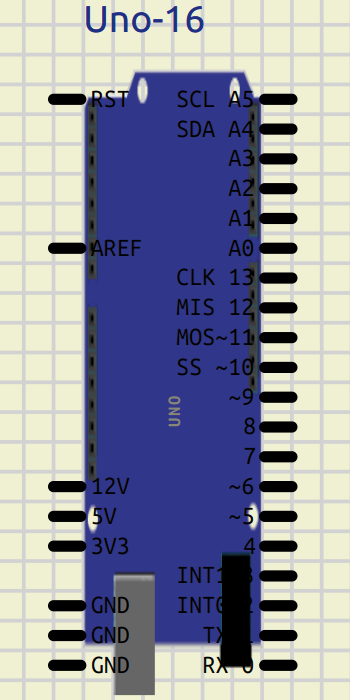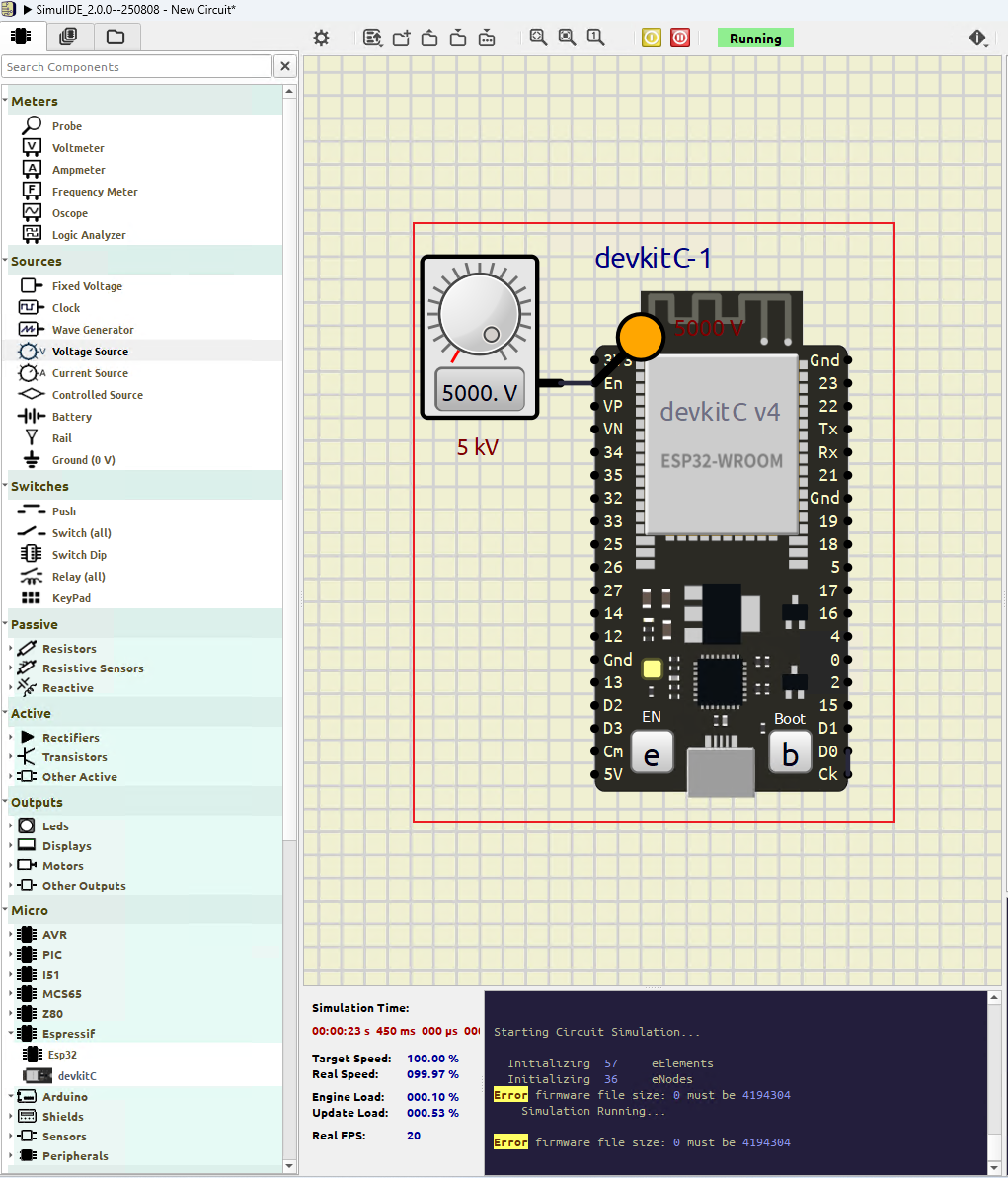Tester builds 2.0.0 (1.2.0)
Quote from LWT98709 on June 25, 2025, 2:01 amPlease, can we have an updated of the tester build ?
Many things have been corrected since the last December version.
Thanks
Please, can we have an updated of the tester build ?
Many things have been corrected since the last December version.
Thanks
Quote from arcachofo on June 26, 2025, 8:47 amI still need to solve a few things.
Probably it will not be version 1.2.0 but 2.0.0
I still need to solve a few things.
Probably it will not be version 1.2.0 but 2.0.0
Quote from arcachofo on August 8, 2025, 4:54 pmVersion 1.2.0 was cancelled in favour of 2.0.0 and has some important changes that makes it incompatible with older versions.
Version 2 uses a new extension .sim2 for circuit files, so older circuits are not overwritten.You can download in tester section: https://simulide.com/p/testers/
Most relevant changes:
- New extension .sim2
- Component library installer/updater (Left Panel).
- Wire current animation (Settings->Circuit->Animate Currents).
- Logic Components:
More configurable.
Invert Pins individually (Right-click).
New Configurable Binary Counter.
New Magnitude Comparator.
Shift Register: resizable, bidirectional, parallel inputs.
Full Adder: resizable.- Experimental ESP32:
GPIO and I2C should be working.
Very unstable, it can freeze the application, only for basic testing.There is a test circuit included in the downloads.
If you have any questions, please let me know.
Version 1.2.0 was cancelled in favour of 2.0.0 and has some important changes that makes it incompatible with older versions.
Version 2 uses a new extension .sim2 for circuit files, so older circuits are not overwritten.
You can download in tester section: https://simulide.com/p/testers/
Most relevant changes:
- New extension .sim2
- Component library installer/updater (Left Panel).
- Wire current animation (Settings->Circuit->Animate Currents).
- Logic Components:
More configurable.
Invert Pins individually (Right-click).
New Configurable Binary Counter.
New Magnitude Comparator.
Shift Register: resizable, bidirectional, parallel inputs.
Full Adder: resizable.
- Experimental ESP32:
GPIO and I2C should be working.
Very unstable, it can freeze the application, only for basic testing.
There is a test circuit included in the downloads.
If you have any questions, please let me know.
Quote from desmondchan71 on August 8, 2025, 6:02 pmHello,
Thank you for the effort.
I found that the link to the windows version is still 1.2.0 instead of 2.0.0
Hello,
Thank you for the effort.
I found that the link to the windows version is still 1.2.0 instead of 2.0.0
Quote from arcachofo on August 8, 2025, 6:07 pmQuote from desmondchan71 on August 8, 2025, 6:02 pmHello,
Thank you for the effort.
I found that the link to the windows version is still 1.2.0 instead of 2.0.0
Thank you, it should work now.
Quote from desmondchan71 on August 8, 2025, 6:02 pmHello,
Thank you for the effort.
I found that the link to the windows version is still 1.2.0 instead of 2.0.0
Thank you, it should work now.
Quote from daVinci on August 11, 2025, 9:21 pmHi,
I noticed a bug in Arduino Uno, if you select the package 'Logic Symbol' it squeeze de board image instead of the traditional rectangle.
Hi,
I noticed a bug in Arduino Uno, if you select the package 'Logic Symbol' it squeeze de board image instead of the traditional rectangle.

Quote from ukka on September 20, 2025, 12:34 amHi.
I can't believe the ESP32's EN pin can withstand a 5kV voltage; that's completely against common sense.
Hi.
I can't believe the ESP32's EN pin can withstand a 5kV voltage; that's completely against common sense.
Quote from ukka on September 20, 2025, 4:04 amHi.
I hope the esp32 cannot operate without power, the pin voltage tolerance is consistent with the datasheet, and exceeding the withstand voltage should cause damage. Similarly, a warning should be issued when the supply voltage is too low, and the simulator should explicitly state that the mcu is not working properly. The simulation should try to follow natural science as much as possible.
Hi.
I hope the esp32 cannot operate without power, the pin voltage tolerance is consistent with the datasheet, and exceeding the withstand voltage should cause damage. Similarly, a warning should be issued when the supply voltage is too low, and the simulator should explicitly state that the mcu is not working properly. The simulation should try to follow natural science as much as possible.
